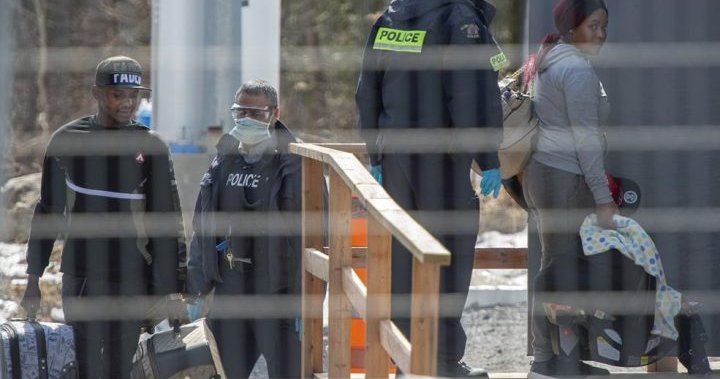Advocates for refugees and human rights are arguing before the Supreme Court of Canada that a bilateral agreement “contracts out” Canada’s international obligations to people claiming refugee status to the US without adequate oversight to verify that Washington is fulfilling its end of the bargain.
In a written submission, the Safe Third Country Agreement’s detractors seek the top court to rule that the legislation supporting the 18-year-old agreement violates the guarantees of life, liberty, and security of the person found in Section 7 of the Charter of Rights and Freedoms.
Oral arguments regarding the legitimacy of the pact, which recognises Canada and the United States as safe havens for those seeking protection, will be heard by the Supreme Court on Thursday.
According to the agreement, Canada is allowed to turn away potential refugees who arrive at land ports of entry along the Canada-U.S. border on the grounds that they must prosecute their claims in the U.S., the country from where they originally came.
In its own submission to the court, the Canadian government claims that returnees have access to just asylum and detention procedures on the other side of the border. “Removing claimants to the United States so they might seek protection there is not unreasonable.
Canadian advocates for refugees have fought the asylum arrangement for a long time, arguing that the United States is not necessarily a safe location for persons escaping persecution.
The Canadian Council for Refugees, the Canadian Council of Churches, and Amnesty International, who took part in the proceedings as public interest parties, brought the case before the Federal Court on behalf of a number of refugee claimants.
The applicants, who are nationals of El Salvador, Ethiopia, and Syria, entered from the United States at an official Canadian entry point and requested refugee protection in each instance.
They claimed in court that by sending non-refugee claimants back to the United States, Canada puts them at risk of incarceration and other human rights violations.
Justice Ann Marie McDonald of the Federal Court found that the Safe Third Country Agreement leads to the imprisonment of ineligible claimants by the United States in her ruling from 2020.
authorities.
According to her, detention and the repercussions that follow it violate the rights protected by Section 7 of the Charter and are “inconsistent with the spirit and goal” of the refugee accord.
“The data unequivocally shows that those sent back to the United States by Canadian officials are held as a punishment.”
But last year, the Federal Court of Appeal reversed the judgement.
The Appeal Court stated that “the alleged constitutional error in this instance arises from how administrators and officials are carrying out the legislative system, not from the legislative scheme itself.”
However, “we neither have the ability nor the evidence before us to analyse the administration behaviour because the plaintiffs opted not to attack any administrative action.
Aside from the treatment received by those who were transported back to the United States, the Court of Appeal judged the legislative framework to be in accordance with the Charter.
may be demonstrated to “shock the conscience.”
The plaintiffs and counsel contend in their petition to the Supreme Court that the Appeal Court took a “very restricted approach to Charter scrutiny” and “declined to engage with the substantive merits of the case.”
They claim that the American immigration detention system for housing asylum seekers has received “widely denounced for its serious violations of international minimum standards.”
According to the submission, “This legislative system effectively contracts out Canada’s international commitments to refugee claimants on the basis that the U. S. will fulfil those obligations for us.”
They contend that despite the fact that Canada is expected by law to continuously assess U.S. asylum policy and practises, “it has failed to do so.”
The Canadian examination of the bilateral agreement, according to the government, was “efficient, effective, and thorough” at the time of the Federal Court hearing, and the material acquired did not point to any major issues.
Without sufficient follow-up, campaigners claim that Canada is sending refugees back to the United States.

